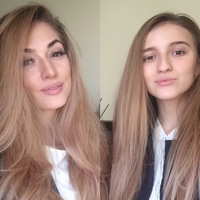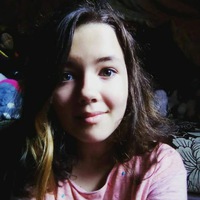
Назовите понятие, общее для приведенных ниже слов, объединяющее их : 3.1)Опека,брачный
договор,несовершеннолетний ребенок.3.2)Палка-копалка,прялка,сверильный станок.3.3)Живопись ,театр,музыка.3.4)Учеба,игра ,труд.3.5)Прямой умысел,косвенный умысел,неосторожность .3.6)Страта,класс,сословие.3.7)Сбор налогов,защита границ,издание законов.3.8)Православие ,католицизм,протестанизм. 0
0
 0
0
Ответы на вопрос
 Внимание! Ответы на вопросы дают живые люди. Они могут содержать ошибочную информацию, заблуждения, а также ответы могут быть сгенерированы нейросетями. Будьте внимательны. Если вы уверены, что ответ неверный, нажмите кнопку "Пожаловаться" под ответом.
Внимание! Ответы на вопросы дают живые люди. Они могут содержать ошибочную информацию, заблуждения, а также ответы могут быть сгенерированы нейросетями. Будьте внимательны. Если вы уверены, что ответ неверный, нажмите кнопку "Пожаловаться" под ответом.

государство и его кодекс
 0
0
 0
0

Common Concept for the Given Words
The common concept that unifies the given words in each group is as follows:
3.1) Legal Relationship: The words "опека" (guardianship), "брачный договор" (marriage contract), and "несовершеннолетний ребенок" (minor child) all relate to legal relationships. "Опека" refers to the legal guardianship of a person, "брачный договор" refers to a legal agreement made before or during marriage, and "несовершеннолетний ребенок" refers to a minor child who is under the legal age of adulthood.
3.2) Tools: The words "палка-копалка" (shovel), "прялка" (spinning wheel), and "сверильный станок" (drilling machine) all refer to different tools. "Палка-копалка" is a tool used for digging, "прялка" is a tool used for spinning fibers into thread, and "сверильный станок" is a tool used for drilling holes.
3.3) Forms of Art: The words "живопись" (painting), "театр" (theater), and "музыка" (music) all represent different forms of art. "Живопись" refers to the art of painting, "театр" refers to the art of theater performance, and "музыка" refers to the art of creating and performing music.
3.4) Activities: The words "учеба" (education), "игра" (game), and "труд" (work) all represent different activities. "Учеба" refers to the activity of learning or studying, "игра" refers to the activity of playing games, and "труд" refers to the activity of work or labor.
3.5) Mental States: The words "прямой умысел" (direct intent), "косвенный умысел" (indirect intent), and "неосторожность" (negligence) all represent different mental states. "Прямой умысел" refers to the deliberate intent to commit an act, "косвенный умысел" refers to the indirect intent or knowledge of the consequences of an act, and "неосторожность" refers to the lack of care or negligence.
3.6) Social Hierarchy: The words "страта" (social class), "класс" (class), and "сословие" (estate) all relate to social hierarchy. "Страта" refers to the social class or rank, "класс" refers to a social group with similar economic or social status, and "сословие" refers to a hereditary social group or estate.
3.7) Government Functions: The words "сбор налогов" (tax collection), "защита границ" (border protection), and "издание законов" (lawmaking) all represent different functions of the government. "Сбор налогов" refers to the government's collection of taxes, "защита границ" refers to the government's responsibility to protect the borders, and "издание законов" refers to the government's role in making laws.
3.8) Christian Denominations: The words "православие" (Orthodoxy), "католицизм" (Catholicism), and "протестантизм" (Protestantism) all represent different Christian denominations. "Православие" refers to the Eastern Orthodox Christian tradition, "католицизм" refers to the Roman Catholic Christian tradition, and "протестантизм" refers to the Protestant Christian tradition.
Please let me know if there is anything else I can help you with!
 0
0
 0
0
Топ вопросов за вчера в категории Обществознание
Последние заданные вопросы в категории Обществознание






-
Математика
-
Литература
-
Алгебра
-
Русский язык
-
Геометрия
-
Английский язык
-
Химия
-
Физика
-
Биология
-
Другие предметы
-
История
-
Обществознание
-
Окружающий мир
-
География
-
Українська мова
-
Информатика
-
Українська література
-
Қазақ тiлi
-
Экономика
-
Музыка
-
Право
-
Беларуская мова
-
Французский язык
-
Немецкий язык
-
МХК
-
ОБЖ
-
Психология
-
Физкультура и спорт
-
Астрономия
-
Кыргыз тили
-
Оʻzbek tili












